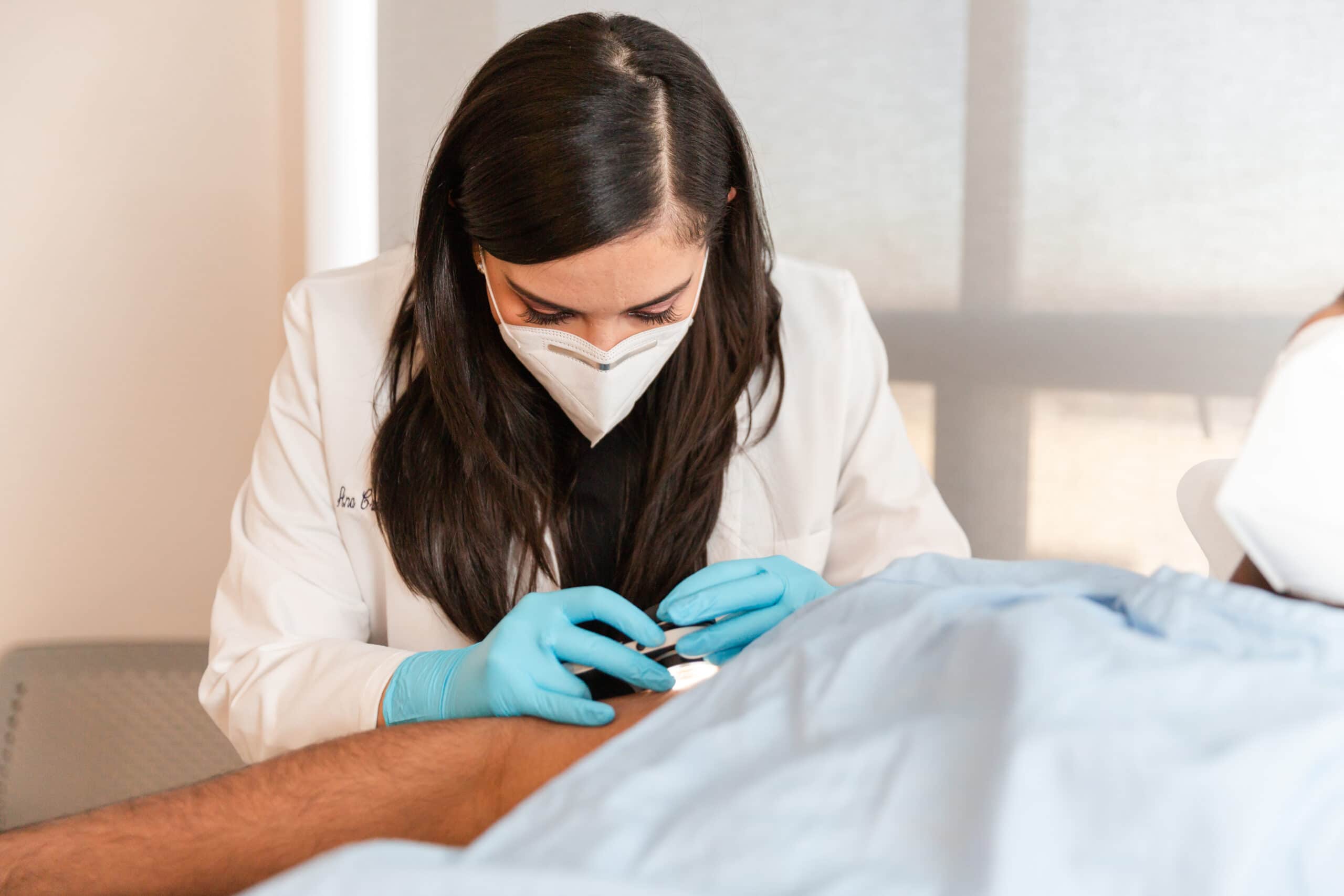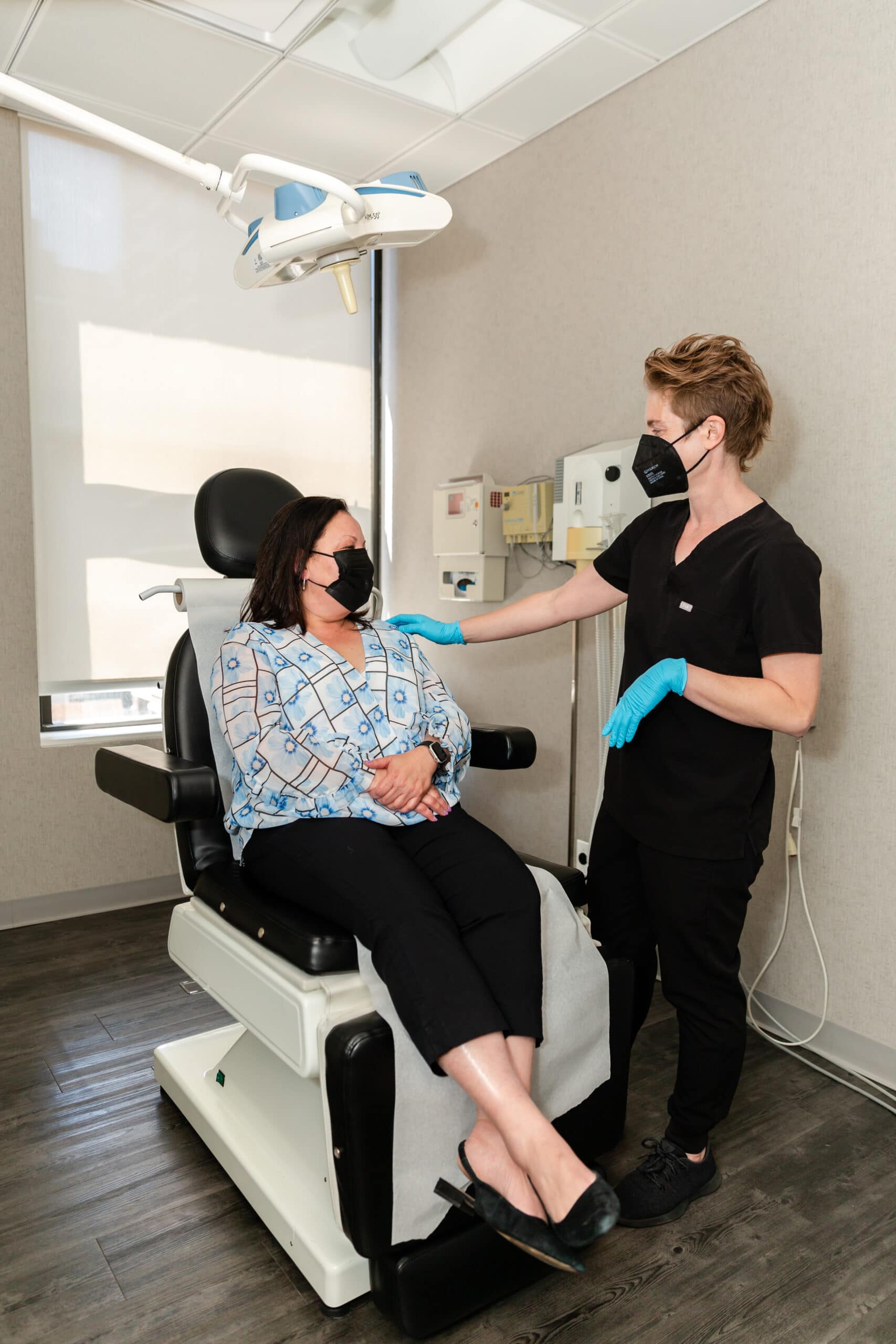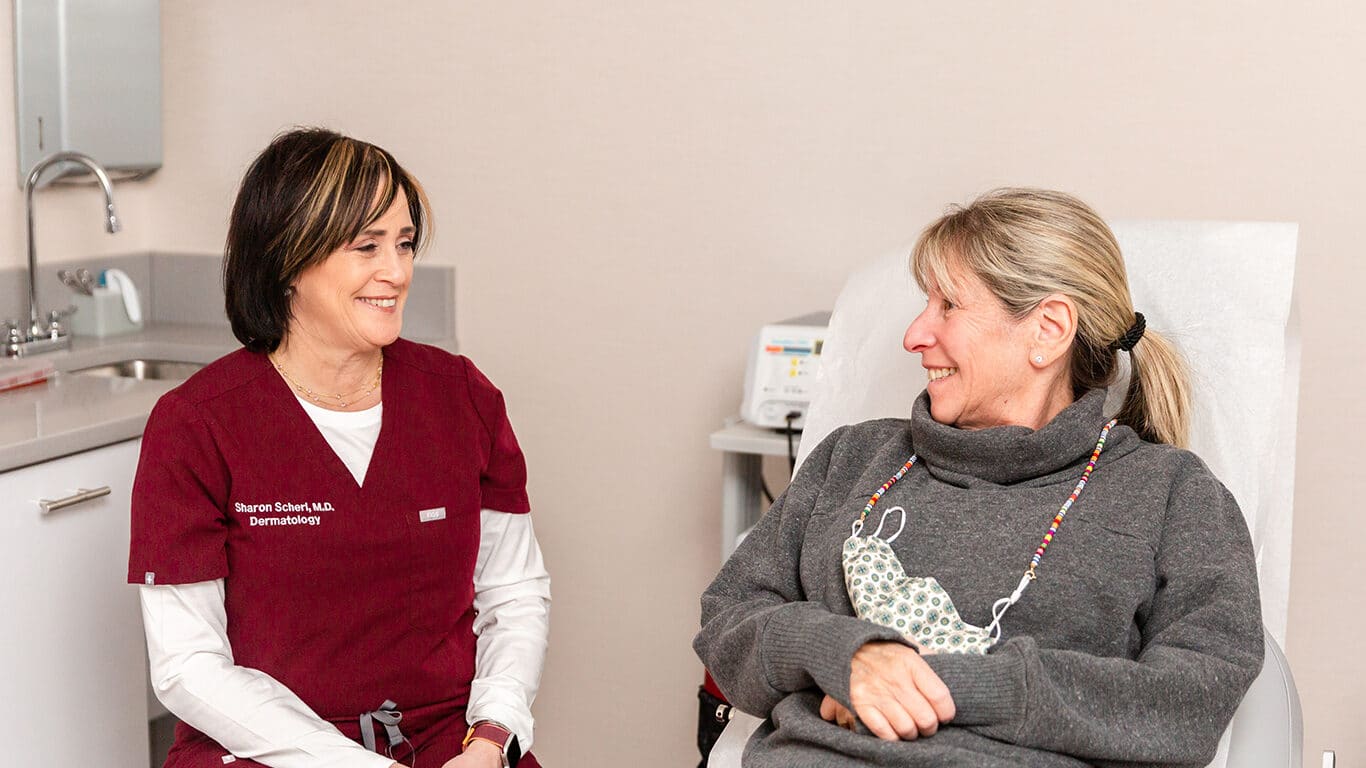
Atypical Mole (Dysplastic) Treatment in Englewood Cliffs, NJ
While atypical moles are not melanoma, they can turn cancerous without proper monitoring and treatment. Regular skin cancer screenings are essential for melanoma prevention.

This type of mole can look like melanoma. It is not melanoma. But you have a higher risk of getting melanoma if you have any of the following:
- 4 or more atypical moles.
- Already had a melanoma.
- A first-degree relative (parent, brother, sister, or child ) who had melanoma.
Another name for an atypical mole is dysplastic (dis-plas-tic) nevus. Atypical moles often have the following characteristics:
- Larger than an eraser on the end of a pencil.
- Have an odd shape (not round).
- Show more than 1 color — mixes of tan, brown, red, and pink.
Atypical moles can appear anywhere on the body. They often appear on the trunk. And they may appear on the scalp, head, and neck. Atypical moles rarely appear on the face.
Some people who have many atypical moles have a medical condition called familial atypical multiple mole-melanoma (FAMMM) syndrome. People with FAMMM syndrome have:
- Many moles — more than 50
- Some moles that are atypical
- A blood relative who has (or had) melanoma
LEARN MORE AT YOUR CONSULTATION IN ENGLEWOOD CLIFFS, NJ TODAY
Atypical moles can increase your risk of melanoma without proper treatment. If you have an atypical mole, contact our office today to schedule your consultation.
OTHER Skin Conditions
Acne
Acne is the most common skin condition in the United States. Although it’s common, accurate information about acne can be scarce.
Acne Cysts
An acne cyst forms when the pore fills with dead skin cells oil, and bacteria. A cyst goes deep into the skin and can hurt.
Actinic Keratosis
An actinic keratosis or AK is a rough, dry, scaly patch or growth that forms on the skin. An AK forms when the skin is badly damaged by ultraviolet (UV) rays from the sun or indoor tanning.
Alopecia (Hair Loss)
Millions of people experience hair loss. Some people see their hair re-grow without doing anything. Others need treatment for their hair to re-grow. Sometimes, hair will not re-grow.
Atopic Dermatitis/Eczema
This is a common skin disease in children. Children often get atopic dermatitis (AD) during their first year of life. If a child gets AD during this time, dry and scaly patches appear on the skin.
Basal Cell Carcinoma
Basal cell carcinoma (BCC) is the most common form of skin cancer. More than two million cases of this skin cancer are diagnosed in the United States each year.
Bed Bugs
Bedbugs are tiny insects that feed on human blood. They hide in dark places close to where humans sleep and usually crawl out to feed while people are fast asleep.
Dry Skin
Dry skin is common. It can occur at any age and for many reasons. Using a moisturizer often helps repair dry skin.
Eczema
Eczema is a word that means irritated skin. Doctors don’t really know why some kids and adults get eczema, and others don’t. They think it might happen for a variety of reasons.
Thousands of People in the Metro Area Trust Scherl Dermatology
CONTACT US
Scherl Dermatology
Englewood Cliffs, NJ 07632
Same-Day Appointments Now Available


CONTACT US
Scherl Dermatology
140 Sylvan Ave. Suite 302,
Englewood Cliffs, NJ 07632
Same-Day Appointments Now Available
Scherl Dermatology
©2024 Schweiger Dermatology Group. All Rights Reserved. Privacy Policy | The information available on this website is provided for informational purposes only. This information is not intended to replace a medical consultation where a physician's judgment may advise you about specific disorders, conditions and or treatment options. We hope the information will be useful for you to become more educated about your healthcare decisions. If you are vision-impaired or have some other impairment covered by the Americans with Disabilities Act or a similar law, and you wish to discuss potential accommodations related to using this website, please contact us at 201.568.8400 .

